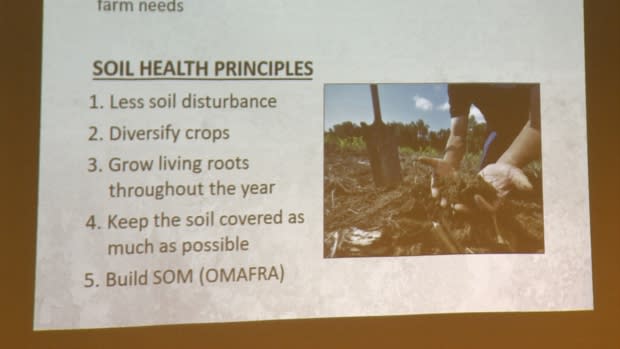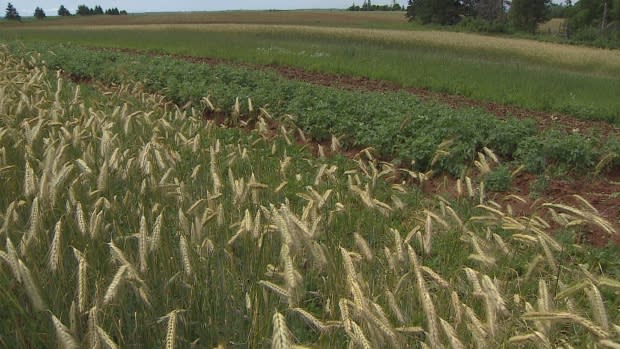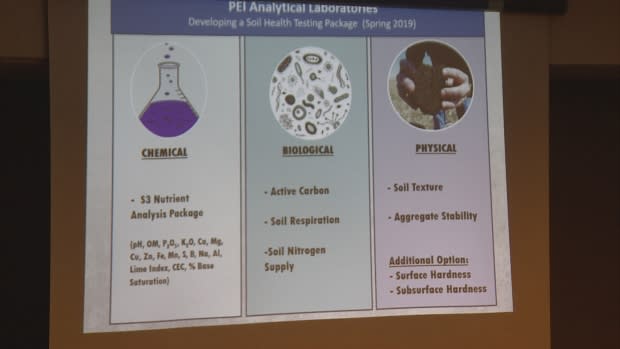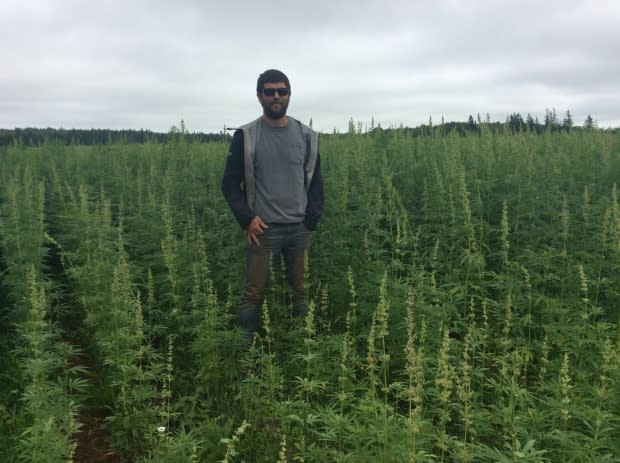P.E.I. farmers can grow knowledge about soil health with new testing
Farmers on P.E.I. will soon have a new way to measure the health of their soil, using a testing package developed by the P.E.I. Department of Agriculture.
Researchers from the department have been gathering soil samples for two years at 250 sites across the Island. Those samples will form a baseline for the testing.

"It's looking at a chemical, biological and a physical component of your soil and coming up with a soil quality index and seeing how productive your soil is," said Kyra Stiles, from the department's sustainable agriculture section.
"We're getting a good amount from each county and we're getting a broad range of cropping systems, so livestock operations as well as vegetable and forage production."
The new program is based on similar soil testing from a U.S. university.
"We're using the Cornell soil health test as our framework for this and because it's more so based in soils from New York state and other parts of America, it's not as useful for intepreting soils here on P.E.I.," Stiles said.
"We need to have something that's going to be a good range for producers ... on P.E.I. specifically."

New way of looking at soil
Stiles says the Atlantic Soil Health Lab in Truro, N.S., is doing a similar project in Nova Scotia and New Brunswick.
"I think it's very important, it's a whole new aspect of looking at soil quality," Stiles said.
"Rather than just looking at the nutrient analysis side of things or doing testing for specific, like nematodes or disease pathogens, we get to look at the physical components and the biological components of the soil as well."
Stiles says there will be a cost for the soil health testing but the amount hasn't been determined yet.

Pilot project
Matt Ramsay is one of the growers who has been piloting the new soil testing.
"Originally it was through our watershed group and then the provincial Department of Agriculture," Ramsay said, from Oyster Cove Farms in Hamilton, near Indian River, P.E.I.
"We collected a bunch of baseline data in our area to try and ascertain what was high, what was low and what our area looked like in terms of soil health."
Ramsay says he's already learned a lot about soil health.
"I learned that it's incredibly complex and we have a long way to go yet," Ramsay said.
"And I think that's indicated by where we're at with the conversation now — which is what does this all mean?"

Ramsay admits not everyone is sold on the concept of testing soil health.
"There's a lot of people still skeptical because they're not seeing yields increase after doing some of these best management practices or tried some of these new crops," Ramsay said.
"It doesn't matter how well you do in terms of boosting healthier soil, we're still dependent on rain. There's a lot of discouraged growers because we've had some discouraging years. But that doesn't mean that soil health implementation isn't working."

Stiles hopes farmers will give the new soil health testing program a chance.
"We're just kind of hopeful that it's going to be taken up by a large amount of the agricultural community to assess their soil as a complement to what they're already doing," Stiles said.
More P.E.I. news

